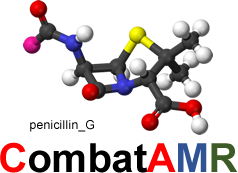>Health Protection Scotland - Scottish One Health Antimicrobial Use ...
https://www.hps.scot.nhs.uk/haiic/amr/resourcedetail.aspx?id=337
14 Nov 2017 - A 'One Health' approach, tackles antimicrobial resistance (AMR) and its drivers across all settings. This report describes a range of AMR and antimicrobial use (AMU) data in human, and for the first time, animal infections.
>Control of Antimicrobial Resistance Scotland (CARS)
https://www.nes.scot.nhs.uk/education-and-training/by-theme-initiative/public-health/health-protection/control-of-antimicrobial-resistance-scotland-(cars).aspx
September 2015. Webinar provided by Dr Eleanor Anderson, Consultant Epidemiologist on behalf of CARS Team,Health Protection Scotland.
>Advisory Committee on Dangerous Pathogens (ACDP)
https://www.gov.uk/government/policy-advisory-groups/advisory-committee-...
ACDP is an expert committee of the Department of Health and its role is to provide scientific advice on the risks to exposure to pathogens and risk assessment advice on transmissible spongiform encephalopathies (TSEs). Its work cuts across a number of organisations, including the Health and Safety Executive, Public Health England and the Department for Environment, Food and Rural Affairs.
>UK Cross-Government Strategy on Antimicrobial Resistance (AMR)
https://www.gov.uk/government/publications/uk-5-year-antimicrobial-resis...
The overall goal of this new cross-government UK strategy is to slow the development and spread of antimicrobial resistance by focusing activities around 3 strategic aims.
- improve the knowledge and understanding of antimicrobial resistance
- conserve and steward the effectiveness of existing treatments
- stimulate the development of new antibiotics, diagnostics and novel therapies
The strategy confirms the UK’s leading role in stimulating national and international action on this global issue.

>Public Health England (PHE)
http://www.gov.uk/government/organisations/public-health-england
Public Health England, an executive agency of the Department of Health, works with national and local government, industry and the NHS to protect and improve the nation's health. PHE are addressing inequalities by focusing on removing barriers to good health and support healthier choices. As of 2014 PHE assumed responsibility for AMR awareness raising, including the annual European Antibiotic Awareness Day. Public Health Englands (PHE) implements the highly successful e-BUG project which created an initial consortium of 28 international partner countries. http://www.e-bug.eu/
>Antibiotic Guardian was developed in 2014 by Public Health England.
http://antibioticguardian.com/ #AntibioticGuardian
The campaign is led by Public Health England (PHE) in collaboration with the Devolved Administrations (Scotland, Wales and Northern Ireland), the Department for Environment Food and Rural Affairs (DEFRA) and professional bodies/ organisations towards the ‘One Health’ initiative. It supports the UK Antimicrobial Resistance strategy and seeks Pledges from members of the public, veterinary, health and social care professionals, academics, teachers and students to become Antibiotic Guardians.
>Keep Antibiotics Working was launched by PHE across England on 23 October 2017
It supports the government’s efforts to reduce inappropriate prescriptions for antibiotics. Antibiotic resistant infections are caused by the unnecessary and inappropriate use of #antibiotics, such as not taking them as prescribed or saving them for later use. It's vital to #KeepAntibioticsWorking Learn more: http://bit.ly/2Gy1pJ
![]() Return of PHE ‘Keep Antibiotics Working’ for 2018 eight week campaign launched on 23rd October.
Return of PHE ‘Keep Antibiotics Working’ for 2018 eight week campaign launched on 23rd October.
> UK Government
https://www.gov.uk/government/collections/european-antibiotic-awareness-day-resources
The European Antibiotic Awareness Day is supported in England by the Department of Health and its advisory committee on antimicrobial resistance and health care associated infections (ARHAI). The NHS, local authorities and others are asked to support EAAD to promote greater awareness of the issue locally and nationally.
>UK Government Strategy
https://www.gov.uk/government/publications/uk-5-year-antimicrobial-resistance-strategy-2013-to-2018
The overall goal of this new cross-government UK strategy is to slow the development and spread of antimicrobial resistance by focusing activities around 3 strategic aims.
- improve the knowledge and understanding of antimicrobial resistance
- conserve and steward the effectiveness of existing treatments
- stimulate the development of new antibiotics, diagnostics and novel therapies
The strategy confirms the UK’s leading role in stimulating national and international action on this global issue
>NHS England
http://www.england.nhs.uk
NHS England is an independent body at arm’s length to the Government, formally established as the NHS Commissioning Board on 1 October 2012. It will play a key role in the Government’s vision to modernise the health service with the key aim of securing the best possible health outcomes for patients by prioritising them in every decision it makes.
>Advisory Committee on Antimicrobial Resistance and Healthcare Associated Infection (ARHAI).
https://www.gov.uk/government/policy-advisory-groups/advisory-committee-...
The Committee provides practical and scientific advice to the government on minimising the risk of healthcare associated infections.
>The Welsh Antimicrobial Resistance Programme
https://www.wales.nhs.uk/sites3/page.cfm?orgid=457&pid=28418

The programme has been established by Public Health Wales as a response to the increasing problems of antimicrobial resistance. The core aims of the Antimicrobial Resistance Programme in Wales (drawn from the UK Antimicrobial Resistance Strategy and Action Plan) are:
- Minimise the morbidity and mortality due to antimicrobial resistant infection
- Maintain the effectiveness of antimicrobial agents in the treatment and prevention of microbial infections in man and animals.
The key elements to achieve these core aims are:
- Develop systems for the effective surveillance of antimicrobial resistance
- Develop systems to enhance the effective surveillance of antimicrobial usage
- Inform, support and promote the prudent use of antimicrobials.
Antimicrobial stewardship guidance has been published by Public Health Wales and is available to download from Public Health Wales Antimicrobial Stewardship Guidance [pdf icon 2013, 728kb]
>Antibiotic Resistance: AMR Programme 2018 Reports.
http://www.wales.nhs.uk/sitesplus/888/page/94136
>Antibiotic resistance: Awareness campaign, resources - Public Health Wales
http://www.wales.nhs.uk/sitesplus/888/page/94015
